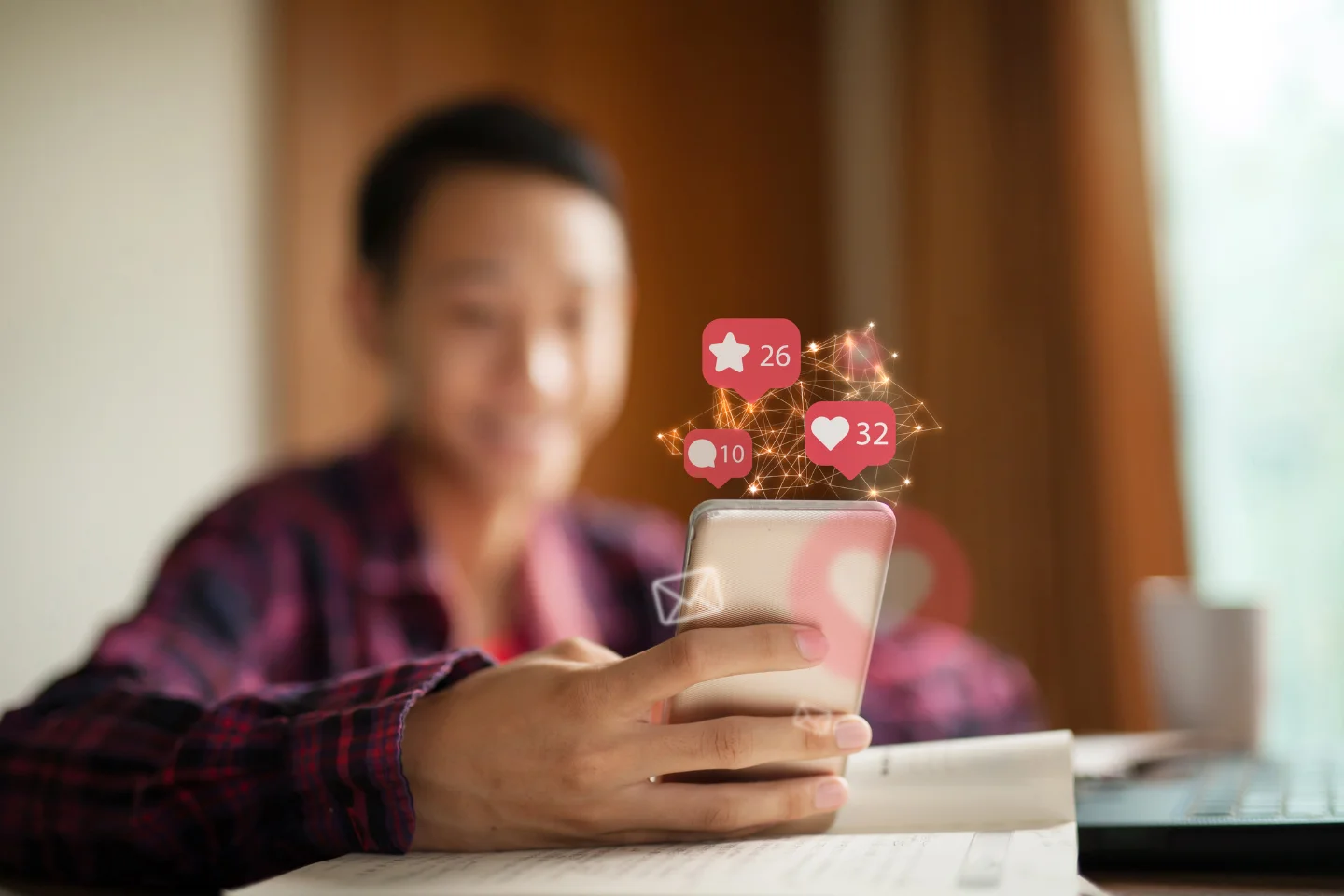Do you feel a phantom vibration in your pocket, or a constant urge to check your phone for new notifications? Do you find yourself scrolling endlessly, losing track of time, only to feel drained and disconnected afterward? You’re not alone. The constant digital pull can feel overwhelming, stealing your focus and peace from real-world moments.
What Is Social Media & Smartphone Addiction?
While not yet formally recognized as a clinical disorder, social media and smartphone addiction are real behavioral issues that describe the compulsive need to use a phone or social media platforms. It’s more than just a habit; it’s an inability to control usage despite negative consequences in your work, relationships, and mental health.
Common symptoms and thought patterns include:
- Fear of Missing Out (FOMO): The anxiety that others are having fun or experiencing things without you.
- The “Dopamine Loop”: A constant cycle of checking for notifications, likes, and comments for a quick hit of pleasure.
- Neglecting responsibilities: Ignoring work, school, or personal obligations in favor of screen time.
- Social comparison: Constantly comparing your life and achievements to the curated, perfect-looking lives of others online.
- Withdrawal symptoms: Feeling irritable, anxious, or restless when you can’t access your phone or social media.
The Deeper Problem: Why It’s So Hard to Break Free
Many people try to solve this problem by simply deleting an app or setting a screen time limit, only to find themselves relapsing. That’s because the root of the issue isn’t just the phone itself, but what the phone helps you avoid.
Your subconscious mind often uses social media and your smartphone as a coping mechanism. It’s a convenient distraction from underlying feelings like loneliness, inadequacy, boredom, or anxiety. The endless scroll and constant connection provide a temporary escape from these difficult emotions. This habit is an unconscious strategy to avoid feeling something uncomfortable, and until you address the deeper emotion, willpower alone isn’t enough to break the cycle.
How NLP Counselling Helps
NLP Counselling works by helping you address the subconscious patterns that drive your behavior. It’s not about fighting your phone; it’s about healing the underlying reasons why you feel the need to use it compulsively.
Here’s how NLP can help:
- Identify Triggers: We’ll use language patterns to uncover the emotional triggers that make you reach for your phone—is it a feeling of inadequacy? A need for validation?
- “Anchoring” New States: We can create a powerful “Anchor” for a feeling of calm or confidence, allowing you to instantly access it instead of turning to your phone.
- Timeline Therapy: This technique helps you go back to the source of limiting beliefs or unprocessed emotions (like feeling “not good enough”) that may be fueling your addiction, allowing you to resolve them at the root.
NLP is a direct, respectful, and effective way to create lasting change, addressing the core issue instead of just the symptom.
What to Expect in a Session
Our NLP counselling sessions are interactive, goal-oriented, and empowering. We won’t just talk about your screen time; we’ll actively use techniques to help you create a new, healthier relationship with technology. You’ll talk, but more importantly, you’ll do the work of change. We provide a confidential and non-judgmental space focused on helping you reclaim your focus and peace.
Reclaim Your Focus & Your Life
You deserve to be present in your own life—to connect with people in person, to enjoy a quiet moment, and to feel a sense of peace without a digital tether. You don’t have to live with the constant pull of your phone. Let’s work together to help you find freedom from the digital distractions that are holding you back.

